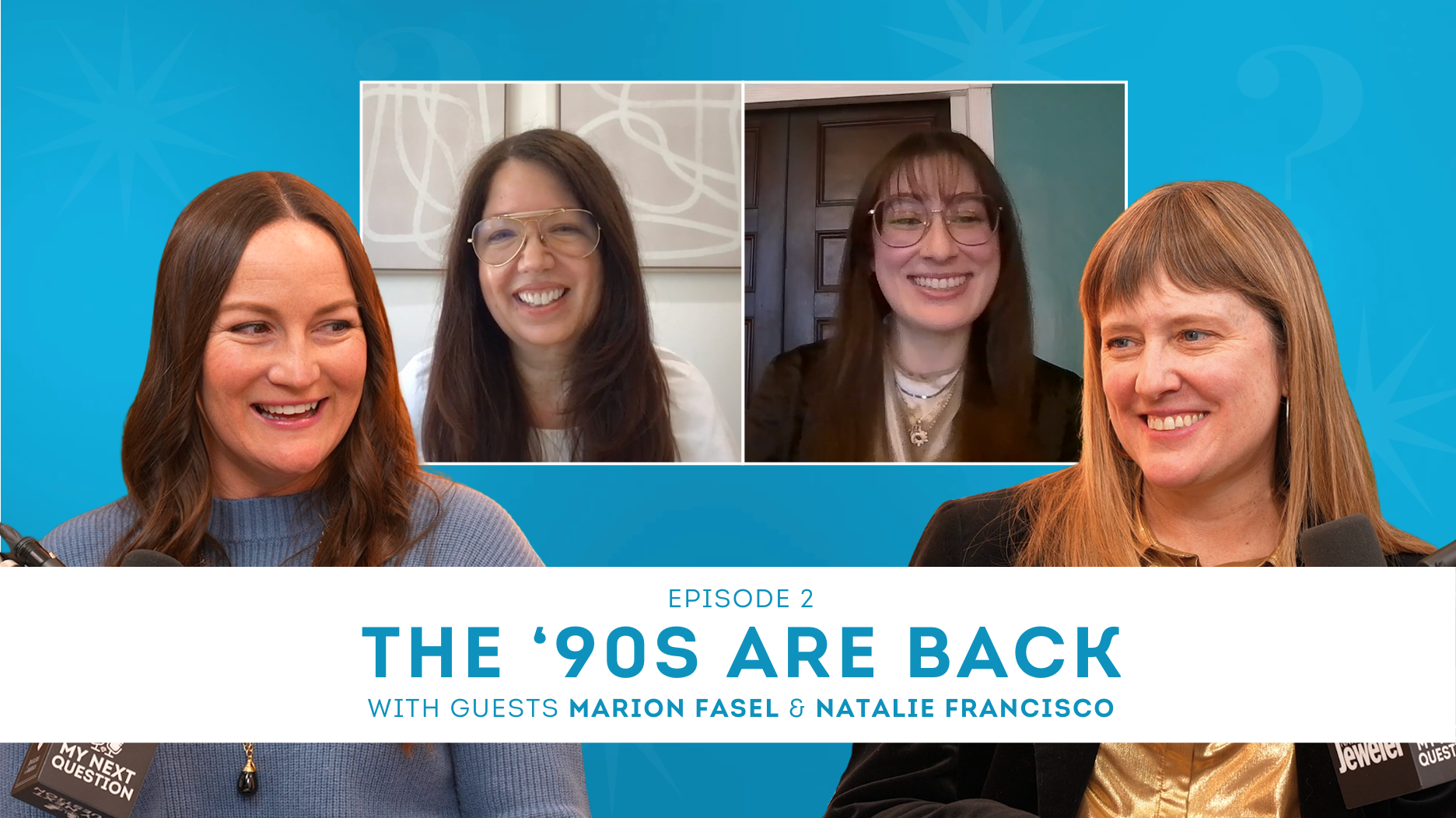Chicago police and members of the U.S. Marshals Service tracked down the 35-year-old suspect earlier this week in St. Louis.
Creative Connecting: Make Your Social Media Bio Stand Out
Duvall O’Steen and Jen Cullen Williams share pro tips for filling out those profiles on Instagram, Facebook, LinkedIn and more.

Consumer loyalty also is enhanced by social media, with 75 percent of the 1,028 consumers surveyed reporting they will increase their spending with a brand they follow on social media.
As consumer buying behavior continues to evolve, more consumers are making stronger and more lasting decisions about brands and professionals based on their social media presence.
The first impression people have when checking out a brand or professional on social media is their bio or profile.
So let’s take a look at some pro tips that can help brands and industry professionals create impactful bios that capture attention and even inspire visitors to act.
First, make sure your account is a public profile, not private, to make it easier for people to find you when searching.
According to Relevance.com, it is also wise to use keywords in the name field to help with SEO: “While most people fail to pay attention to the name, it is the name field that makes up the first 30 characters of your Instagram bio and is an excellent source of helping you with SEO.”
Also, Instagram is the most visual of all the social media platforms, so a professional photo in the profile is a must. Brands can use visual graphics, like their logo.
Instagram limits the bio to only 150 characters.
Kristy Hurt, founder of Kristy Hurt Consulting and the Co-lab and formerly of LVMH, advises to “be specific, brief and clear.”
In as few words as possible, explain what differentiates you or your brand from others. For example: “WeWork provides you with the space, community and services you need to make a life, not just a living.”
For jewelry specifically, include keywords that are relevant for your brand such as “by women for women,” “artisan jewelry,” “inspired by architecture and nature,” etc.
Most importantly, include a call to action.
The bio text appears right above the website on Instagram, so the call to action could relate to the link, e.g., “Discover our award-winning designs,” “Explore our collections” or “Shop our feed.”
The call to action can be updated as needed to highlight special promotions, events or product launches.
Including a hashtag in your bio makes it a clickable link so that people can explore and follow the hashtag
If you are a professional and not a brand, consider creating your own jewelry specific hashtag. Then use it with every relevant post so that people can easily click that hashtag in your bio to see all the posts.
You can also get creative by using fun emojis in your bio on Instagram to help create a mood or vibe.
Pre-pandemic, JetBlue had the airplane emoji in their bio and then the camera emoji for their call to action, “Tag us in your JetBlue moments @jetblue.”
In emergency or unusual circumstances—like COVID-19—social media is an easy way to communicate immediate and current information to your customers.
Include your special operating hours or offerings, like curbside pickup, in your bio. It is quick and easy to change, and it ensures to customers you are available and open for business.
Also, if you have multiple websites or pages within your website where you want to drive traffic (for example, your blog and home page), consider setting up a Linktr.ee account.
Linktr.ee is a free tool that allows you to include multiple links, optimizing your traffic from Instagram. Visitors to your profile can easily access your Linktr.ee and click on any link from there.
Be sure to use the contact buttons on your Instagram profile, as well, but note that these are only shown in the app view, not the web view.
Many brands ignore them, but the contact buttons can make you more accessible to new customers as well as guide customers to your preferred method of contact.
For example, if you are a wholesale brand, you can include an email address and/or a phone number but avoid the physical address since you do not sell directly.
Retailers should always use the physical location so they come up in local searches.
Lastly, if your brand has multiple Instagram handles for various parts of your business, Sprout Social advises including the official accounts in your bio. This helps to avoid confusion with knockoff accounts, and it ensures your followers “know what’s legit and what’s not.”
If anyone else tries to insert a link to your profile in their own bio, you’ll receive a notification and can choose to accept or deny it.
Facebook business pages offer a bit more space to fully describe your brand or business.
The biggest pro tip for a Facebook business page is to be complete. Fill out everything and be as detailed as possible.
If you are using part of your marketing budget to advertise on Facebook, it is critical that your “About” page be complete and helpful.
If it’s not, your ad dollars could be generating customer interest fruitlessly. Customers who cannot find information easily get frustrated and/or distracted and move on.
According to Hootsuite.com, “A well-done ‘About’ section can answer many of your page visitors’ questions—saving you a lot of time and energy.
“If your page doesn’t have relevant and helpful information users are seeking, there’s a good chance they’ll simply leave and take their business elsewhere.”
Remember to use keywords in your company description. Choose each word strategically, keeping SEO in mind but without sounding like a robot.
Also, be sure to update your contact info regularly and update your hours when relevant for special promotions, emergencies or extenuating circumstances.
Hootsuite also recommends including legal notices for business pages, such as “Comments will be moderated and deleted if they contain profanity, obscenity or vulgarity, defamation to a person or people, name-calling and/or personal attacks. Repeated violations of our comment policy may cause the author to be blocked from [company name] social media.”
Include this type of information in the “Impressum” section on your Facebook business profile.
LinkedIn profiles and bios are more personal but similar tips apply to help you (and your personal “brand”) cut through the noise and stand out from the crowd.
The LinkedIn Business Marketing Solutions Blog advises everyone to maximize the profile headline by writing something that is “instantly recognizable.”
Use keywords in your headline to make you easier to find in a search. For example, instead of “Award-Winning Designer,” try “Award-Winning Gold Jewelry Designer with 15+ Years of Custom Design Customer Satisfaction.”
The blog also points out that making incremental updates to your profile can greatly increase your visibility on LinkedIn. So be sure to update your profile every few months with milestones, awards or honors, new skills or work experience.
The LinkedIn Profile Summary is your elevator pitch and should support your objectives.
According to Articulated Marketing, “the most important part of your summary is the first few words, so please don’t start with, ‘I am a ___ who works at ___.’ Get straight into the talents that make you stand out.”
Articulated Marketing also recommends backing achievements with numbers, as “well-chosen data can go a long way to impressing others on LinkedIn.”
Professional associations and clientele can also help.
Hurt advises, “If you are an unknown or lesser-known person, agency or company, be sure to include a client list or share some key brand partners for credibility.”
Lastly, enrich your profile on LinkedIn with media such as articles you have written, videos you have helped produce, photos of successful promotions or special events.
Yelp/Google Business
According to Chris Mazurk, owner of digital marketing agency Mazloy, the profile recommendations for Yelp and Google Business are fairly interchangeable.
As you set up your business on Yelp or Google Business, Mazurk recommends you “claim every physical address you have since the results will appear in searches based on the searcher’s proximity.”
Also, be sure to include photos and/or videos of your business and its products.
“The increase in perceived legitimacy from pictures is massive,” he said.
To gain customer trust, that legitimacy is crucial. Retailers can use photos of storefronts, interiors and commercial videos, whereas brands may prefer to focus on manufacturing photos, high-res product images and designer studio/atelier imagery.
Yelp offers three sections to describe your business: Specialties, History and Meet the Owner/Manager.
Be sure to fully complete each one. Specialties allows a 1,500 character limit, while History and Meet the Owner/Manager both allow 1,000 characters, giving you lots of opportunity to include keywords and describe what sets your business apart from others.
Avoid using these areas to post promotions/offers or announcements, and always use good etiquette. Never attack competitors or people who have negatively reviewed your business or brand.
Mazurk suggests you create an outreach campaign to request reviews from offline relationships: friends, family, local networking groups, etc.
“Don’t overthink the legitimacy of the review; the raw volume will help push your listing to the top.”
And be sure to respond to every review, even the negative ones.
Mazurk suggests a sincere apology for negative reviews with a commitment to improving, reminding us that “defensiveness is not inviting.”
Google Business accounts should also utilize Google Places.
It is free and easy to claim your business listing with Google Places. Through the dashboard, you can find important data like how many people are searching you on Google, what term they searched to find you, the ZIP codes they are coming from and other metrics.
Other Platforms: Twitter, Pinterest, YouTube, TikTok, etc.
For other social media channels, use some of these same tips to personalize your profile while keeping in mind the audience.
Remember to include keywords, a professional photo, hashtags and emojis where appropriate, contact details, hours of operations, etc.
And be specific for that particular social media channel. As an example, remember that Pinterest does not use hashtags and is a very visual network while Twitter is more verbal, so the profile limits you to one photo and a few words—choose them wisely.
For your YouTube channel, use alt tags or keywords in your profile’s “About” description in the same way you would for the videos you post.
Be consistent so consumers find a similar impression of you or your brand no matter where they find you.
“Make sure your branding is consistent across channels: website, LinkedIn, Instagram, Facebook, Twitter, YouTube and even TikTok!” advises Hurt.
“Even if you are not a Twitter person or a YouTube person, for example, it’s great to have all social channels engaged, if possible, as any one channel could go viral and lead people to your other channels.”
Lastly, Hurt reminds us to drive traffic to these various channels.
“Always include links to your business website and social channels in your permanent email signature, as well as links on all other social channels where you have a brand presence.”
The Latest

Owners of the Ekapa Mine reportedly filed for liquidation about a week after a mudslide trapped five workers who have yet to be found.

A 10-year alliance has also begun to address the shortage of bench jewelers through scholarships, enhanced programs, and updated equipment.

Every jeweler faces the same challenge: helping customers protect what they love. Here’s the solution designed for today’s jewelry business.
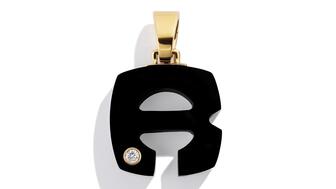
The “Splendente” collection has evolved to feature hardstone letter pendants, including our Piece of the Week, the onyx “R.”

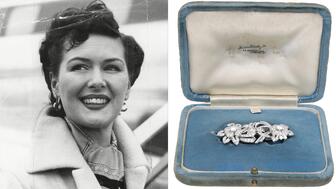
The jewelry collection belonged to “one of society's most glamorous and beautiful women of the mid-20th century,” said the auction house.

The update came as Anglo took its third write-down on the diamond miner and marketer, which lost more than $500 million in 2025.

With refreshed branding, a new website, updated courses, and a pathway for growth, DCA is dedicated to supporting retail staff development.

Each received around four years for burglarizing a jewelry store and a coffee shop in Simi Valley, California, last May.

Catherine Aulick, a GIA graduate, received the ninth and final Gianmaria Buccellati Foundation Award for Excellence in Jewelry Design.

We asked a jewelry historian, designer, bridal director, and wedding expert what’s trending in engagement rings. Here’s what they said.
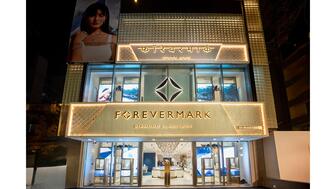
Experts from India weigh in the politics, policies, and market dynamics for diamantaires to monitor in 2026 and beyond.

Beth Gerstein discusses the vibe of the new store, what customers want when fine jewelry shopping today, and the details of “Date Night.”

Are arm bands poised to make a comeback? Has red-carpet jewelry become boring? Find out on the second episode of the “My Next Question” podcast.

The Swiss watchmaker is battling declining sales amid a rapid retail expansion, according to a Financial Times report.

The campaign celebrates Giustina Pavanello Rahaminov, the co-founder’s wife and matriarch of the family-owned brand, for her 88th birthday.
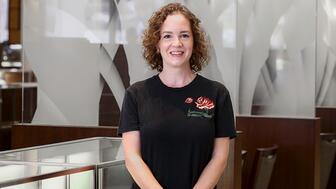
Rachel Bennett, a senior jeweler who has been with Borsheims since 2004, earned the award.

After the Supreme Court struck down the IEEPA tariffs, President Trump imposed a 10 percent tax on almost all imports via a different law.

The industry veteran, who was with The Edge Retail Academy for 14 years, joins her husband at the company he founded in 2022.

The vintage signed jewelry retailer chose Miami due to growing client demand in the city and the greater Latin American region.

Former Flight Club executive Jin Lee will bring his experience from the sneaker world to the pre-owned watch marketplace.

Sakamoto, who died in mid-January following a sudden illness, is remembered for his humility and his masterful, architectural designs.
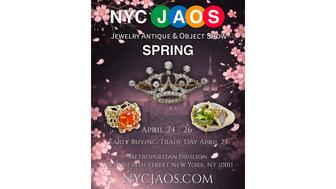
The April event will feature a new VIP shopping day requiring a special ticket.

Bulgari chose the British-Albanian singer-songwriter for her powerful and enduring voice in contemporary culture, the jeweler said.

In a 6-3 ruling, the court said the president exceeded his authority when imposing sweeping tariffs under IEEPA.
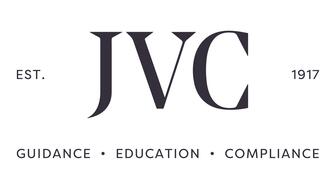
JVC also announced the election of five new board members.
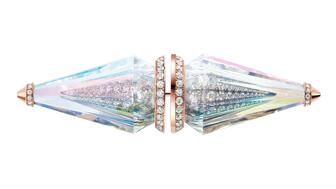
The brooch, our Piece of the Week, shows the chromatic spectrum through a holographic coating on rock crystal.













